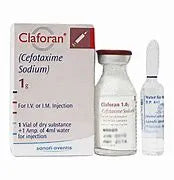Expert Advice
Indications
This medicine is used to treat Meniere’s disease (a disorder of the inner ear) and labryrinthine disorders (disorder that can lead to vertigo and hearing loss). It is also used for treating nausea, vomiting, migraine, emotional disturbances, and psychosis in schizophrenic patients.
Contraindications
This medicine is contraindicated in patients with bone marrow depression and comatose states (coma). Should be avoided in patients with liver or kidney impairment, hypothyroidism (low levels of thyroid hormone), heart failure, pheochromocytoma (benign tumor of the adrenal glands), Parkinson’s disease, epilepsy, myasthenia gravis (neuromuscular disorder characterized by muscle weakness), prostate enlargement, blood disorders, and eye diseases.
Precautions
Patients with chronic and undiagnosed vomiting should take precautions. It should be cautiously used in patients with cardiovascular diseases, diabetes, AIDS, dementia (deterioration in memory), and depression. Elderly patients must observe caution, particularly in extreme weather conditions. Patients must beware of impaired judgment and dexterity. Full blood counts must be monitored regularly.
Side-effects
The side effects of this medicine are brain disturbances, changes in ECG pattern, hormonal disturbances, allergic reactions, blood disorders, insomnia, anxiety, seizures, hypotension, hyponatremia (decreased sodium), hyperglycemia (increased glucose), drowsiness, glucose intolerance, jaundice, and nasal stiffness. Other adverse effects include skin reactions, SIADH (disorder that causes body to retain water).
Pregnancy
There is insufficient evidence regarding the use of this medicine during pregnancy. Therefore, it is advised to consult your healthcare provider before taking this medicine.
Lactation
The effects of this medicine in lactating mothers are unknown. Consult your health care provider before use of this medicine.













Reviews
There are no reviews yet.